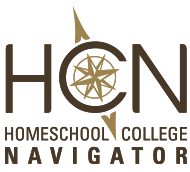When factoring in the costs of going to college, many students tend to overlook one thing: textbooks. Sure, tuition, room and board, and campus fees are pretty expensive on their own, but textbooks come close. The average college student spends about $900 per year on textbooks and the average cost of one comes out to about $175. At the end of the day, you just spent a month’s worth of groceries on 500+ pages of hardbound academic material.
But I’m really not here to talk about the costs of textbooks. It would be kind of pointless, especially seeing how I’ve already gone over why textbooks cost as much as they do. So to avoid being redundant, I’m instead going show you how to make full use of your textbooks. Trivial, I know. You’d think that after spending $100 to $200 dollars on a textbook, students would actually use it. I mean, if you spent $100 on groceries, you’d eat it, wouldn’t you? You’d be surprised how many actually don’t.
First of all, not all your courses require that you have a textbook. They’re sometimes listed as recommended reading material, which means that your instructor may never actually use it. To avoid wasting your money on something you won’t need, wait until the first day of class and find out from your instructor if you’ll be using it in class. Of course, in most cases, you will be, but it certainly doesn’t hurt to wait and see. Chances are, you’ll save yourself some money.
Now that you’ve got your book, where do you start? Well, first, you’ll want to turn to the first page…past the title page…past the table of contents…author’s notes…introduction…in fact, keep turning the pages until the i’s,v’s, and x’s at the bottom of the page turn into numbers. Chapter One. Start there.
Next, check your syllabus for the tentative schedule and plan your reading based off that. Not all of your instructors will follow through the textbook, but many of them will (those that forced you to buy the textbook anyway). Sometimes they’ll go out of the order of the book and even skip entire sections. Plan your reading and studying based off that outline.
As you read, you’ll want to keep notes on any key terms and definitions that arise and try to work out any question or problems they throw at you. Even go over chapters that your professor skips with whatever extra time that you have just to enlighten yourself a bit. What you really want to be able to do is already have all the information and practice you need so that way, everything that your professor goes over will be fresh in your mind and you’ll be ready for any new information or understanding that your professor may offer.
So you’ve finished reading the textbook, taken all the notes you could get out of it, practiced all the problems that you could bear, and even used it as a pillow after many long nights of studying. Now what? Well, there’s a number of things you could do with it. Use it as a paperweight, as a doorstop, as a weapon, or simply add it to your bookshelf to show people years to come that you’re smart and educated. Or you could sell it to get some of your money back. That works too.


Recent Comments